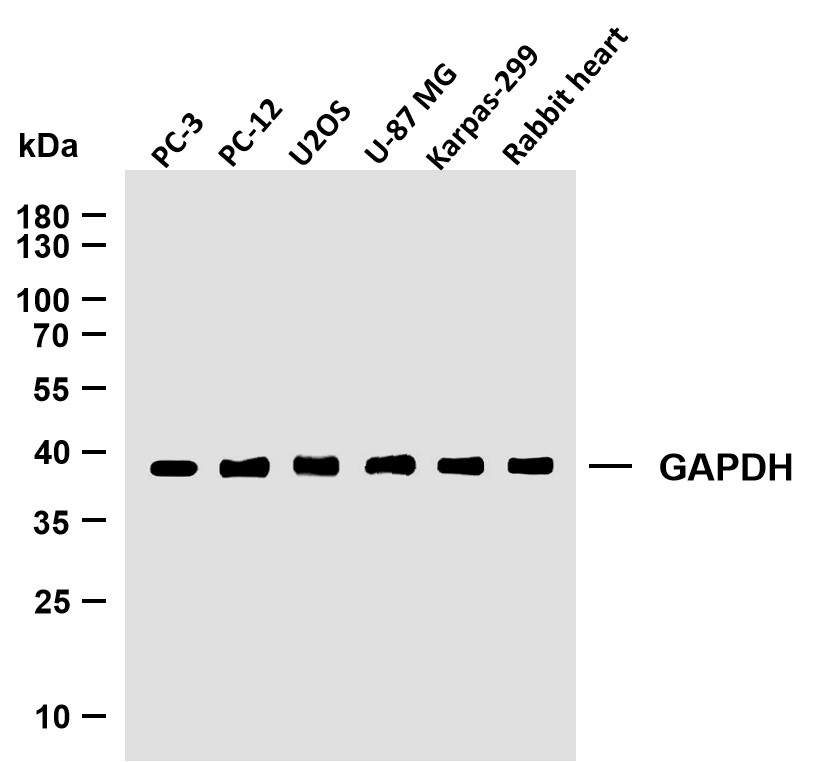
主要信息
Target
Desmin
Host Species
Mouse
Reactivity
Human, Mouse, Rat,
Applications
IHC
Conjugate/Modification
Unmodified
详细信息
推荐稀释比
Ready to use for IHC
组成
The prediluted ready-to-use antibody is diluted in phosphate buffer saline containing stabilizing protein and 0.05% Proclin 300
特异性
The antibody can specifically recognize human Desmin protein.
纯化工艺
The antibody was affinity-purified from ascites by affinity-chromatography using specific immunogen.
储存
2°C to 8°C/1 year
修饰
Unmodified
克隆性
Monoclonal
克隆号
ABT168
同种型
IgG2b,Kappa
相关产品
抗原&靶点信息
免疫原:
Synthesized peptide derived from human Desmin AA range: 400-470
展开内容
特异性:
The antibody can specifically recognize human Desmin protein.
展开内容
基因名称:
DES
展开内容
蛋白名称:
CMD1I;CSM1;CSM2;DES;DESM_HUMAN;Desmin;FLJ12025;FLJ39719;FLJ41013;FLJ41793;Intermediate filament protein;OTTHUMP00000064865
展开内容
别名:
CMD1I ;
CSM1 ;
CSM2 ;
DES ;
DESM_HUMAN ;
Desmin ;
FLJ12025 ;
FLJ39719 ;
FLJ41013 ;
FLJ41793 ;
Intermediate filament protein ;
OTTHUMP00000064865
CSM1 ;
CSM2 ;
DES ;
DESM_HUMAN ;
Desmin ;
FLJ12025 ;
FLJ39719 ;
FLJ41013 ;
FLJ41793 ;
Intermediate filament protein ;
OTTHUMP00000064865
展开内容
背景:
This gene encodes a muscle-specific class III intermediate filament. Homopolymers of this protein form a stable intracytoplasmic filamentous network connecting myofibrils to each other and to the plasma membrane. Mutations in this gene are associated with desmin-related myopathy, a familial cardiac and skeletal myopathy (CSM), and with distal myopathies. [provided by RefSeq, Jul 2008],
展开内容
功能:
Disease:Defects in DES are the cause of cardiomyopathy dilated type 1I (CMD1I) [MIM:604765]. Dilated cardiomyopathy is a disorder characterized by ventricular dilation and impaired systolic function, resulting in congestive heart failure and arrhythmia. Patients are at risk of premature death.,Disease:Defects in DES are the cause of desmin-related cardio-skeletal myopathy (CSM) [MIM:601419]; also known as desmin-related myopathy (DRM). CSM is characterized by skeletal muscle weakness associated with cardiac conduction blocks, arrhythmias, restrictive heart failure, and by intracytoplasmic accumulation of desmin-reactive deposits in cardiac and skeletal muscle cells. A desmin-related myopathy can have a distal onset, it is then known as hereditary distal myopathy (HDM).,Disease:Defects in DES are the cause of neurogenic scapuloperoneal syndrome Kaeser type (Kaeser syndrome) [MIM:181400]. Kaeser syndrome is an autosomal dominant disorder with a peculiar scapuloperoneal distribution of weakness and atrophy. A large clinical variability is observed ranging from scapuloperoneal, limb grindle and distal phenotypes with variable cardiac or respiratory involvement. Facial weakness, dysphagia and gynaecomastia are frequent additional symptoms. Affected men seemingly bear a higher risk of sudden, cardiac death as compared to affected women. Histological and immunohistochemical examination of muscle biopsy specimens reveal a wide spectrum of findings ranging from near normal or unspecific pathology to typical, myofibrillar changes with accumulation of desmin.,Function:Desmin are class-III intermediate filaments found in muscle cells. In adult striated muscle they form a fibrous network connecting myofibrils to each other and to the plasma membrane from the periphery of the Z-line structures.,online information:Desmin entry,similarity:Belongs to the intermediate filament family.,subunit:Homopolymer.,
展开内容
细胞定位:
Cytoplasmic
展开内容
组织表达:
Appendix/ Colon
展开内容
研究领域:
>>Hypertrophic cardiomyopathy ;
>>Arrhythmogenic right ventricular cardiomyopathy ;
>>Dilated cardiomyopathy
>>Arrhythmogenic right ventricular cardiomyopathy ;
>>Dilated cardiomyopathy
展开内容
文献引用({{totalcount}})
Recently Viewed Products
Clear allToggle night Mode
{{pinfoXq.title || ''}}
Catalog: {{pinfoXq.catalog || ''}}
Filter:
All
{{item.name}}
{{pinfo.title}}
-{{pinfo.catalog}}
主要信息
Target
{{pinfo.target}}
Reactivity
{{pinfo.react}}
Applications
{{pinfo.applicat}}
Conjugate/Modification
{{pinfo.coupling}}/{{pinfo.modific}}
MW (kDa)
{{pinfo.mwcalc}}
Host Species
{{pinfo.hostspec}}
Isotype
{{pinfo.isotype}}
产品 {{index}}/{{pcount}}
上一个产品
下一个产品
{{pvTitle}}
滚轮缩放图片
{{pvDescr}}






















